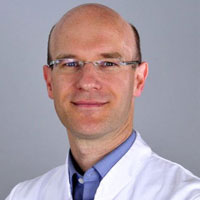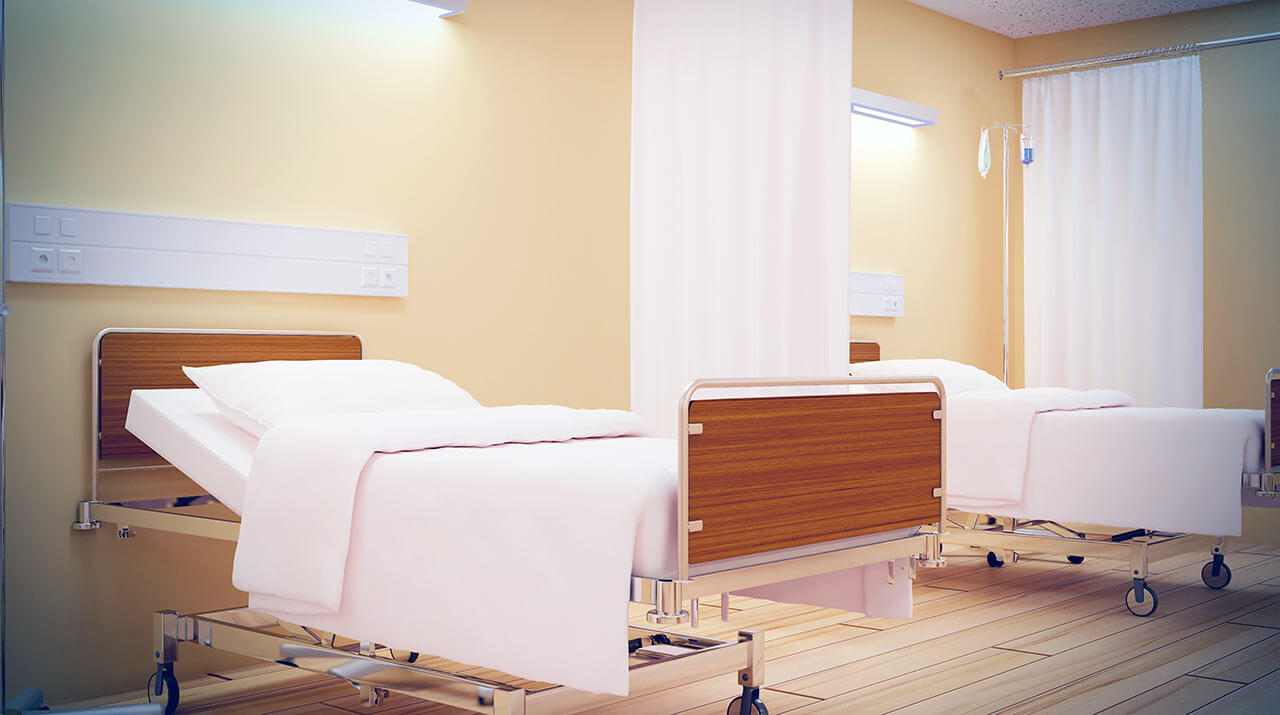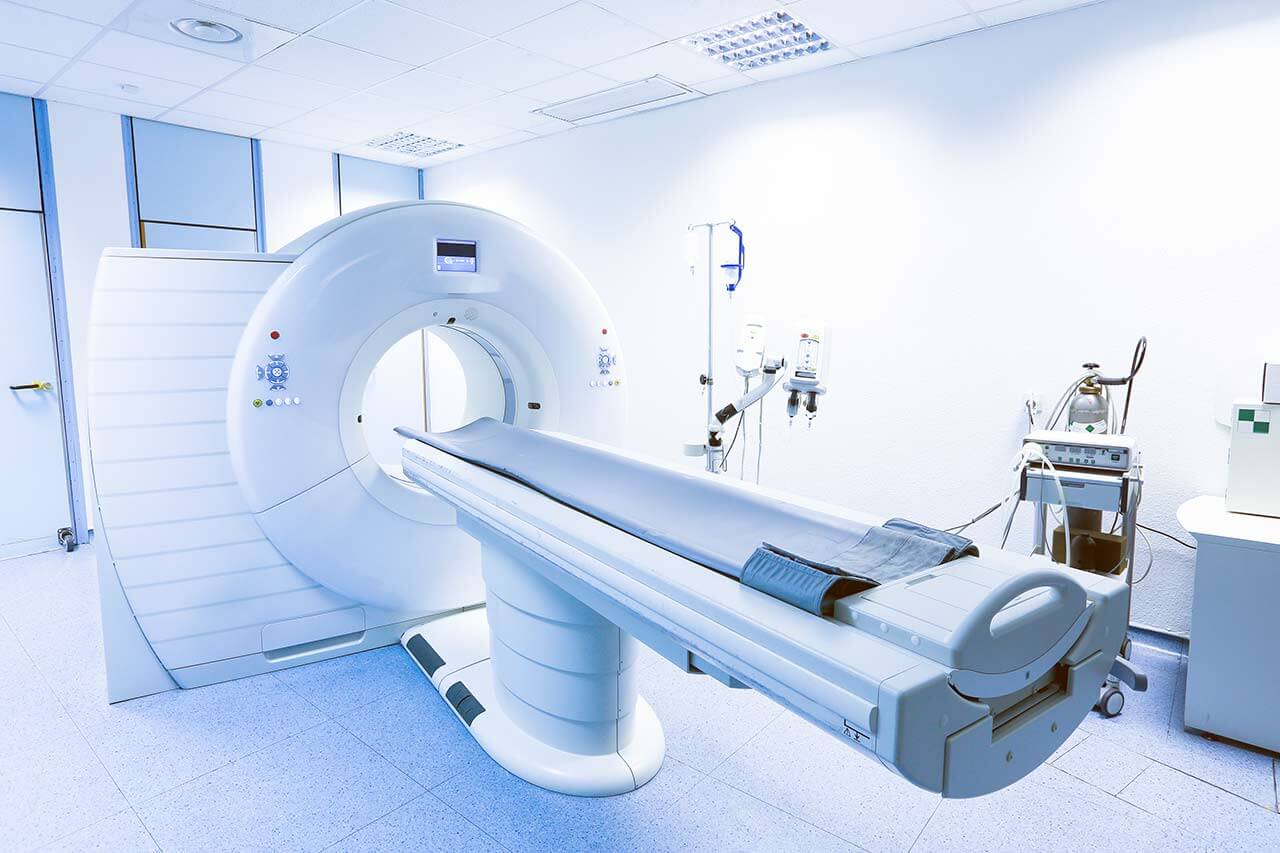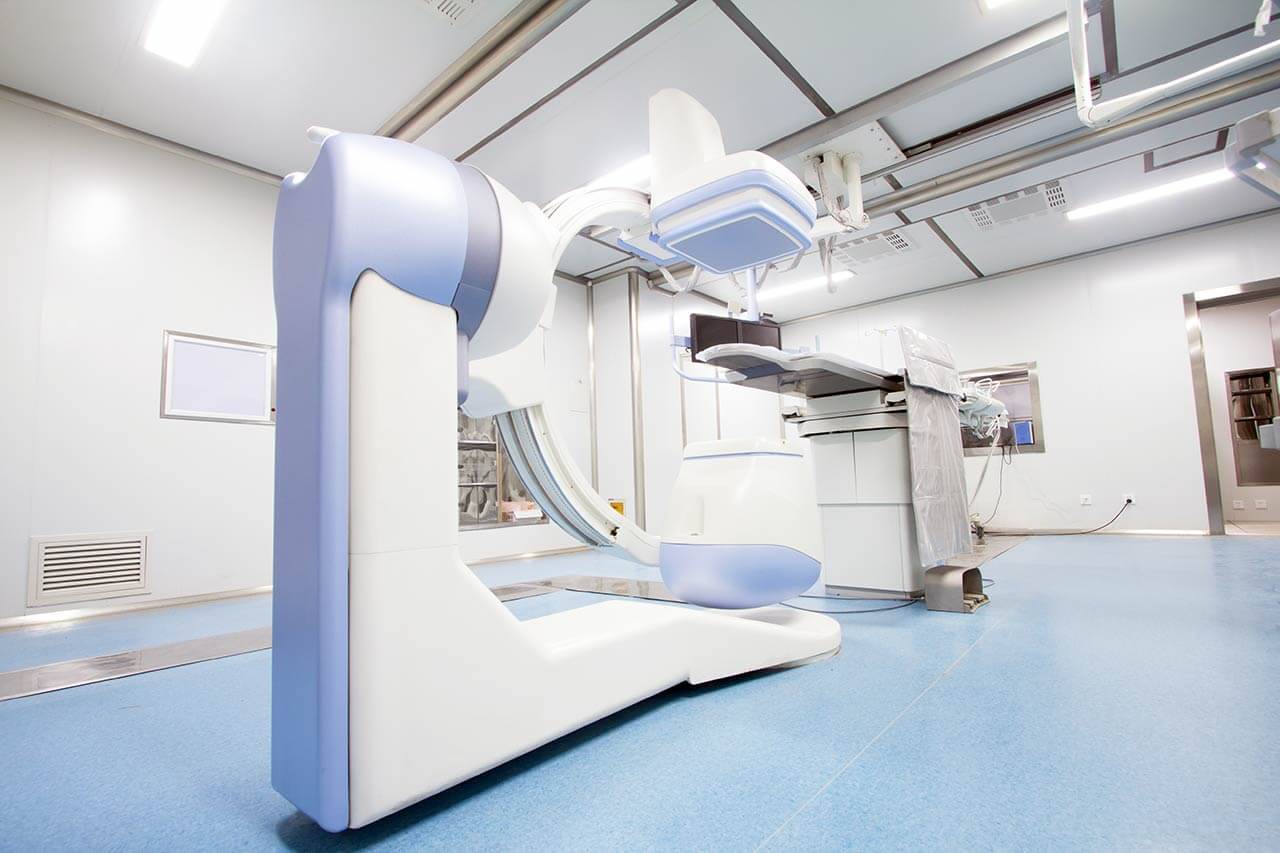
The program includes:
- Initial presentation in the clinic
- clinical history taking
- review of medical records
- physical examination
- eye examination
- laboratory tests:
- complete blood count
- biochemical analysis of blood
- antinuclear antibodies- ANA (SSA/Ro, SSB/La)
- rheumatoid factor (RF)
- Anti-dsDNA
- Erythrocyte sedimentation rate (ESR)
- C-reactive protein (CRP)
- indicators blood coagulation
- mouth (salivary gland) biopsy on indications
- salivary flow
- Schirmer test
- nursing services
- services of all leading experts
- explanation of individual treatment plan
Required documents
- Medical records
Service
You may also book:
 BookingHealth Price from:
BookingHealth Price from:
About the department
According to the prestigious Focus magazine, the Department of Adult and Pediatric Ophthalmology at the University Hospital Greifswald ranks among the top German medical facilities specializing in refractive eye surgery and cataract surgery!
The department offers the full range of diagnostics and treatment for diseases of the eye and its appendages. The department admits patients of all age categories, ranging from young children to the elderly. Both conservative and surgical treatment methods are available here. The department has one of the most active in-house Eye Banks in Germany. Every year, the bank's specialists receive from 600 to 800 corneas to check their quality and prepare them for transplant surgery. The department is equipped with advanced laser systems for treating retinal diseases and glaucoma. The department's doctors are also competent in cosmetic and aesthetic procedures. The top-class specialists with long clinical experience take care of the health of the patients' eyes. Doctors always devote enough time to personal communication with their patients and the selection of optimal treatment tactics, taking into account their individual needs and wishes. The Head Physician of the department is Prof. Dr. med. Andreas Stahl.
The department has gained a reputation as one of the leading medical centers in Germany specializing in cataract surgery. Cataracts are one of the most common and dangerous eye diseases. In the early stages of the pathology, a patient may not even be aware of its presence since they do not experience any symptoms. Over time, the disease progresses, eventually causing complete blindness. With a timely visit to a doctor, a patient with cataracts is prescribed drug therapy with eye drops and pills. These measures are aimed at slowing down the progression of cataracts, and surgery (ultrasonic phacoemulsification) is necessary to completely eliminate them. During the surgical intervention, the department's doctors replace the clouded lens with an artificial intraocular lens. The operation is highly effective, providing restoration of visual acuity in 80-100% of cases. When performing the intervention, doctors use microsurgical techniques. The operation is performed under local drop anesthesia, and its duration does not exceed 10-15 minutes. Following the operation, patients receive recommendations for recovery and eye care.
Patients with glaucoma are also regularly admitted to the medical facility. This disease impairs the aqueous humor outflow from the eye in a patient, as a result of which intraocular pressure increases. Glaucoma progresses rapidly, so timely medical care guarantees a successful treatment outcome. Otherwise, the patient is threatened with irreversible blindness. The department's team of doctors offers all modern options for the fight against glaucoma, including anti-glaucoma drug therapy to normalize intraocular pressure, laser therapy, and surgical interventions. As of today, sparing laser techniques, in particular laser iridectomy, are the most popular. During this procedure, the physicians form additional pathways for the intraocular fluid outflow using non-contact techniques. This type of treatment is highly effective and does not require any anesthesia. It also takes a minimum amount of time and does not cause any pain. The department also offers the following surgical options for treating glaucoma: non-penetrating deep sclerectomy and trabeculectomy.
The department's team of doctors also specializes in the simultaneous treatment of cataracts and glaucoma. In such cases, ophthalmologists simultaneously perform ultrasonic phacoemulsification with intraocular lens implantation and non-penetrating deep sclerectomy. After surgical treatment, the patient gets rid of the cataracts once and for all, and the intraocular pressure and the aqueous humor outflow will also be normalized.
In addition, the department successfully treats congenital cataracts and glaucoma in children. Each child is provided with individualized therapy. Treatment methods for these ophthalmic pathologies in children are almost identical to those used in adults.
Refractive eye surgery (vision correction surgery) is an integral part of the department's clinical practice. Interventions from this group are performed for myopia, hyperopia, astigmatism, and presbyopia. Refractive eye surgery can effectively restore vision, eliminating the need to wear glasses and contact lenses. The department's ophthalmologists work on modern equipment with excimer and femtosecond lasers of the latest generation. The most requested procedures include LASIK, LASEK, and photorefractive keratectomy, as well as the implantation of monofocal, multifocal, toric, and phakic lenses. Prior to any laser vision correction, the department's specialists conduct comprehensive diagnostics of the patient's visual apparatus and, based on their results, select the optimal type of treatment for a visual impairment.
The department's main clinical focuses include:
- Treatment of retina and vitreous diseases
- Vitrectomy
- Treatment of cataracts, including congenital cataracts in children
- Ultrasonic phacoemulsification
- Treatment of glaucoma, including congenital glaucoma in children
- Conservative treatment
- Anti-glaucoma drug therapy
- Laser iridectomy
- Surgical treatment
- Non-penetrating deep sclerectomy
- Trabeculectomy
- Simultaneous operations to treat cataracts and glaucoma
- Conservative treatment
- Treatment of corneal diseases and traumatic injuries
- Corneal transplant (keratoplasty)
- Treatment of tear duct diseases
- Conservative treatment
- Surgical treatment
- Eyelid surgery
- Tumor resection surgery
- Repair of malformations
- Treatment of injuries
- Treatment of strabismus
- Conservative treatment
- Surgical treatment
- Cosmetic plastic and aesthetic surgery
- Blepharoplasty
- Orbital surgery
- Treatment of inflammatory eye diseases (uveitis)
- Treatment of immunologic lesions of the conjunctiva (for example, graft-versus-host disease)
- Intravitreal drug injections and photodynamic therapy for retinal diseases
- Laser therapy for retinal disorders (for example, diabetic retinopathy or macular hole)
- Treatment of eye diseases in children, including hyperopia, myopia, astigmatism, amblyopia, eyelid ptosis, and strabismus
- Other medical services
Curriculum vitae
Higher Education
- 1998 - 2005 Human Medicine studies, University of Freiburg.
- 2001 - 2002 Scholarship from the German Academic Exchange Service (DAAD), Imperial College London, UK.
- 2004 - 2005 One-year practice in Freiburg (Germany) and Basel (Switzerland).
- 2005 Thesis defense and admission to medical practice in Germany.
- 2006 Admission to medical practice in the USA, part I and II of the USMLE exam.
Clinical Activities
- 2006 - 2012 Assistant Physician, Department of Ophthalmology, University Hospital Freiburg.
- 2012 Board certification (German and European standards) in Ophthalmology, Fellow of the European Board of Ophthalmology (FEBO).
- 2012 - 2013 Senior Physician in the Department of Ophthalmology at the University Hospital Freiburg.
- 2013 - 2018 Senior Physician, Section for Retinal Diseases, Department of Ophthalmology at the University Hospital Freiburg.
- 2015 - 2018 Managing Senior Physician, Department of Ophthalmology at the University Hospital Freiburg.
- 2017 Qualification program for Senior Physicians at the Academy for Leadership of Baden-Wuerttemberg.
- Since 2019 Head of the Department of Ophthalmology, University of Greifswald and Head of the Department of Adult and Pediatric Ophthalmology at the University Hospital Greifswald.
Research Activities
- 2002 - 2005 Thesis (defense with honors), University of Freiburg.
- 2004 Scholarship from the German Academic Exchange Service (DAAD), Harvard Medical School, Boston, USA.
- 2007 Research Grant, Faculty of Medicine, University of Freiburg.
- 2008 - 2010 Scholarship from the German Research Foundation (DFG) under the guidance of Prof. Lois Smith in the Department of Ophthalmology, Harvard Medical School, Boston, USA.
- 2010 - 2011 Scholarship, Faculty of Medicine, University of Freiburg.
- 2011 Research funding by the German Ophthalmological Society (DOG) for innovative projects in Ophthalmology.
- 2011 - 2018 Head of the Working Group on Angiogenesis, Department of Ophthalmology at the University Hospital Freiburg.
- 2013 Venia legendi in Ophthalmology.
- 2014 - 2018 Research Grant from the German Research Foundation (DFG).
- 2017 Extraordinary Professorship, University of Freiburg.
- 2017 - 2020 Research funding by the German Federal Ministry of Education and Research (BMBF): "Prediction of treatment outcomes based on patient data analysis in ophthalmology".
- Since 2019 Professor, Department of Ophthalmology, University of Greifswald.
Prizes, Awards and Distinctions
- 2005 Human Tissue and Cell Research Foundation Award.
- 2005 Ludwig Heilmeyer Prize for Thesis Defense, Faculty of Medicine, University of Freiburg.
- 2007 Innovative Teaching Award from the Dean of the Faculty of Medicine at the University of Freiburg.
- 2010 First Place "Most downloaded articles" by IOVS journal.
- 2011 Freifrau von Nauendorf Prize, Wiesbaden.
- 2011 EyeNovative Award from Novartis Pharma GmbH.
- 2012 Best Poster Award on Macular Diseases.
- 2013 Best Presentation Award, FeOph Symposium on Macular Edema, French Society of Ophthalmology (SFO), Paris.
- 2015 Elected by the German Ophthalmological Society (DOG) to participate in the European Leadership Development Program of the European Society of Ophthalmology.
- 2015 Scientific Award in the treatment of retinal diseases from the Congress of German Ophthalmic Surgeons (DOC).
Memberships and Activities in Professional Societies
- Since 2012 Member of the German Ophthalmological Society, responsible for updating the guidelines "Ophthalmic Screening in Premature Babies" of the German Association for Neonatology and Pediatric Intensive Care (GNPI).
- Since 2016 Board Member from the German Retina Society.
- Since 2017 Member of the German Ophthalmological Society in the UV Protection Alliance of the Federal Office for Radiation Protection.
- Since 2019 Representative and First Chairman of retina.net e.V., Association for Research in Vision and Ophthalmology for Clinical Research in Germany.
- Since 2020 Member of the Study Working Group of the German Ophthalmological Society (DOG).
Photo of the doctor: (c) Universitätsmedizin Greifswald
About hospital
According to the reputable Focus magazine, the University Hospital Greifswald is included in the ranking of the best medical complexes throughout Germany!
The hospital is one of the oldest healthcare facilities in Germany, with long traditions and an excellent reputation. The history of the hospital begins in 1456, when the Faculty of Medicine at the University of Greifswald was founded. During this time, the hospital has managed to earn recognition in the national medical arena and gain prestige abroad. The hospital has 19 institutes and 21 specialized departments. The key to successful clinical practice is the combination of state-of-the-art equipment and highly qualified medical personnel who are actively engaged in the development of effective medical techniques and implement them in everyday practice.
The medical team of the university hospital has more than 4,400 employees, including world-famous professors who regularly undergo advanced training in the leading European and American hospitals, where they share their experience with foreign specialists. The doctors at the medical facility annually treat about 180,000 patients. At the same time, the specialists often provide medical care to patients with complex clinical cases, even in those cases that doctors at other medical centers consider hopeless. The hospital has more than 1,000 beds for inpatients, and many highly-specialized outpatient clinics are available in the medical facility for counseling and outpatient medical care.
The hospital presents all the fields of modern medicine. According to Focus magazine, the medical complex is recognized as one of the best in Germany for treating bowel cancer, bladder cancer, malignant brain tumors, skin cancer, multiple sclerosis, Parkinson's disease, dementia, cardiovascular pathologies, knee and hip pathologies, as well as ophthalmic and proctologic diseases. Diagnostic and therapeutic procedures are carried out in strict accordance with national and international standards, which ensures top-class medical care.
The medical team at the hospital makes sure that each patient feels as comfortable as possible during the therapeutic process. Doctors and nursing staff show humanity and understanding, striving to support each patient in every possible way on the path to recovery.
Photo: (с) depositphotos
Accommodation in hospital
Patients rooms
The patients of the University Hospital Greifswald live in comfortable single and double rooms. The patient rooms are made in bright colors and are quite cozy. The furnishings of a standard patient room include an automatically adjustable bed, a bedside table, a TV, and a telephone. The patient room has a table and chairs for receiving visitors. There is also free Wi-Fi in the patient rooms.
If desired, patients can live in enhanced-comfort rooms. In such rooms, patients are additionally offered toiletries, a bathrobe, and a change of towels.
Meals and Menus
The patients of the hospital are offered three healthy and tasty meals a day: a buffet breakfast, a hearty lunch, and dinner. The hospital also houses a cafeteria where one can have a tasty snack, a cup of aromatic coffee, tea, or soft drinks.
Patients staying in enhanced-comfort rooms are offered a special menu with a wide range of main courses, appetizers, desserts, and drinks.
Further details
Standard rooms include:
Religion
The services of representatives of religions are available upon request.
Accompanying person
Your accompanying person may stay with you in your patient room or at the hotel of your choice during the inpatient program.
Hotel
You may stay at the hotel of your choice during the outpatient program. Our managers will support you for selecting the best option.




